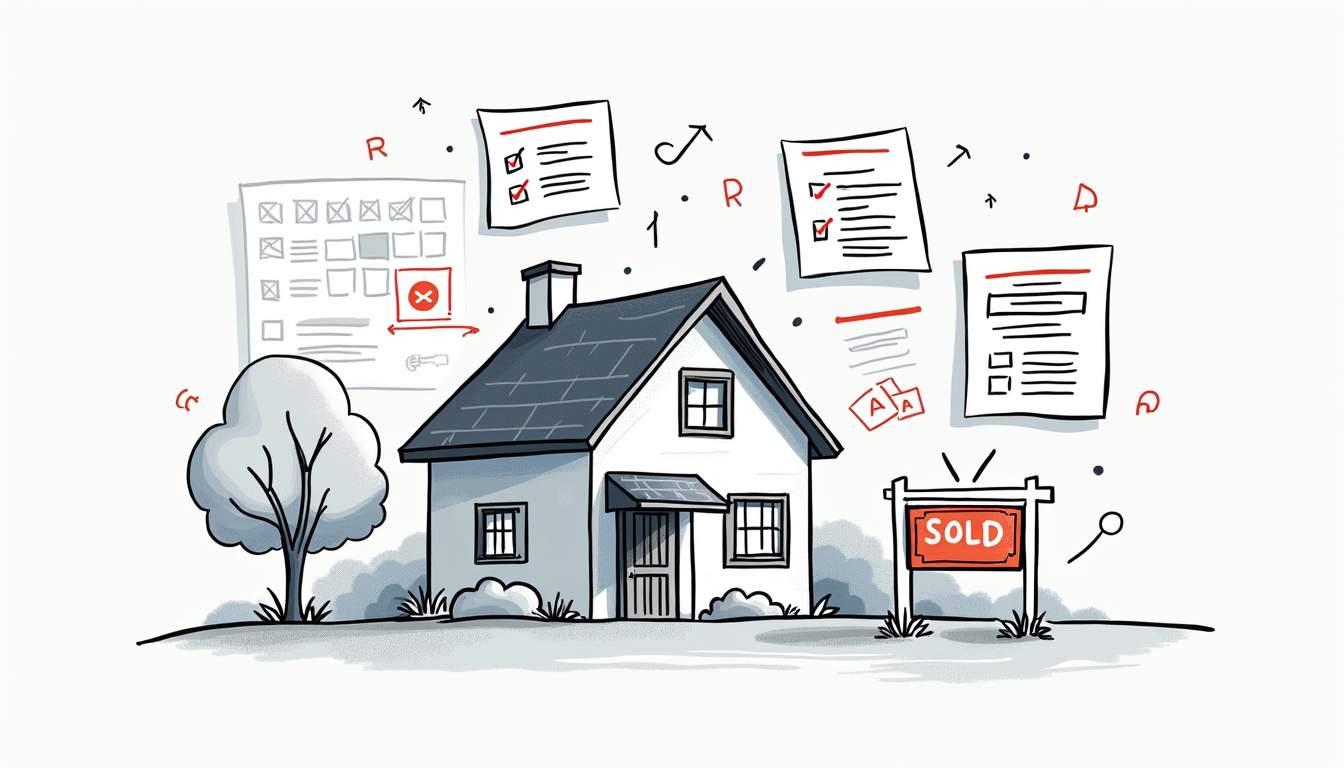
Facing foreclosure can be a daunting experience, and the urgency to sell your house quickly can feel overwhelming. However, understanding the process and knowing your options can make a significant difference. This guide will walk you through the steps to sell your house fast and potentially avoid foreclosure.
Before diving into the selling process, it’s crucial to understand what foreclosure entails. Foreclosure occurs when a lender takes possession of a property due to the homeowner's failure to make mortgage payments. This process can be stressful, but knowing the timeline and your rights can empower you to take action. Being informed can help you navigate this challenging situation and explore alternatives that may be available to you.

The foreclosure process typically begins after a homeowner misses several mortgage payments. Lenders usually provide a grace period, but once this expires, they may initiate legal proceedings. This process can vary by state, but it generally follows these steps:
During this timeline, homeowners may receive various communications from their lenders, including options for loan modifications or repayment plans. It’s important to respond promptly to these offers, as they may provide a way to keep your home or at least mitigate the financial impact of foreclosure. Additionally, understanding the local laws governing foreclosure can help you identify any potential delays or protections that may apply to your situation.
Homeowners have rights during the foreclosure process. It’s essential to be aware of these rights, which can include:
Understanding these rights can provide leverage when negotiating with lenders or potential buyers. Furthermore, homeowners may also have the right to seek assistance from housing counselors or legal aid organizations that specialize in foreclosure prevention. These resources can offer valuable guidance on how to navigate the complexities of the process, including potential alternatives such as short sales or loan modifications that could allow you to retain your home or minimize losses. Engaging with these professionals can also help you understand the implications of foreclosure on your credit score and future borrowing potential.
Before deciding to sell your house, assess your financial situation and the reasons behind the impending foreclosure. This analysis will help you make informed decisions moving forward. Taking the time to evaluate your circumstances can provide clarity and direction, ensuring that you are not making hasty decisions that could negatively impact your future.
Take a close look at your current financial situation. Consider factors such as your income, expenses, and any outstanding debts. Understanding your financial health will help you determine how much you can afford to lose in a sale and what price you should aim for. Additionally, it may be beneficial to consult with a financial advisor who can provide insights tailored to your specific situation. They can help you create a budget that reflects your current reality and project potential future earnings, allowing you to make a more strategic decision about selling your home.
Understanding why you need to sell can guide your approach. Common reasons include:
Clarifying your motivations can help you stay focused and make better decisions throughout the selling process. Moreover, it can also help you communicate your situation effectively to potential buyers or real estate agents. For instance, if your reason for selling is tied to financial hardship, being transparent about your situation may foster empathy and understanding, which could lead to a smoother negotiation process. Additionally, knowing your reasons can help you set realistic expectations regarding the timeline and price of your sale, ensuring that you are prepared for the emotional and logistical challenges that may arise during this transition.
Once you’ve assessed your situation, the next step is preparing your house for sale. This involves both practical and emotional preparations.
While it might be tempting to sell your house "as-is," making necessary repairs can significantly increase its market value. Focus on essential repairs such as:
Even small improvements can make a big difference in attracting buyers.
Having all necessary documents ready can streamline the selling process. Essential documents include:
Being organized can help potential buyers feel more confident in their decision to purchase your home.
There are several ways to sell a house quickly, each with its pros and cons. Understanding these methods can help you choose the best option for your situation.
Hiring a real estate agent can simplify the selling process. An experienced agent can help you:
While agents typically charge a commission, their expertise can lead to a faster sale and potentially higher offers.
Choosing to sell your home without an agent, known as FSBO, can save on commission fees. However, this method requires more effort on your part. Consider the following:
FSBO can be a viable option if you are knowledgeable about the real estate market.
Another option is to sell your house to cash buyers or real estate investors. This method can be appealing for several reasons:
However, be aware that cash offers may be lower than market value, so weigh the pros and cons carefully.
Once you’ve decided on a selling method, it’s time to market your home. Effective marketing can attract more potential buyers and lead to a quicker sale.

In today’s digital age, online listings are crucial. Ensure your home is listed on popular real estate websites and social media platforms. High-quality photos and detailed descriptions can make your listing stand out.
Hosting open houses and private showings allows potential buyers to experience your home firsthand. Keep the property clean and inviting, and consider offering refreshments to create a welcoming atmosphere.
Once offers start coming in, it’s time to negotiate. This stage is critical, as it can significantly impact the final sale price and terms.
Don’t hesitate to make counteroffers if the initial offers don’t meet your expectations. This is a normal part of the negotiation process. Be clear about your priorities, whether it’s the sale price, closing date, or other terms.
Once an agreement is reached, the closing process begins. This step involves several important actions to finalize the sale.
While not always required, hiring a real estate attorney can be beneficial. They can help ensure that all paperwork is correctly completed and that your interests are protected throughout the process.
Before closing, the buyer will typically conduct a final walkthrough of the property. This is an opportunity to ensure that everything is in order and that any agreed-upon repairs have been completed.
On closing day, both parties will sign the necessary documents, and funds will be exchanged. Ensure that you have all required documents ready and that you understand the terms of the sale before signing.
After the sale is complete, there are still a few things to keep in mind. These considerations can help ease the transition and ensure a smooth process.

Once the sale is finalized, take time to assess your new financial situation. Consider how the sale proceeds will impact your debts and future housing options. If you still face financial challenges, seeking advice from a financial advisor may be beneficial.
If you need to find a new place to live, start researching options early. Whether renting or buying, understanding your budget and needs will help you make informed decisions. Consider temporary housing solutions if necessary while you search for a permanent residence.
Selling a house quickly to stop foreclosure is undoubtedly a challenging situation, but with the right knowledge and strategies, it can be managed effectively. By understanding the foreclosure process, preparing your home, and choosing the appropriate selling method, homeowners can navigate this difficult time with greater confidence. Remember, seeking professional advice can also provide valuable support throughout the journey.
Ultimately, taking proactive steps can lead to a successful sale and a fresh start, free from the burdens of foreclosure.
Should I Sell My House or Rent It Out?
How to Sell My House Privately: A Step-by-Step Guide
We purchase homes directly from sellers, offering homeowners a quick, straight-forward sale.Contact us for a free valuation and offer.
get my house valuation now